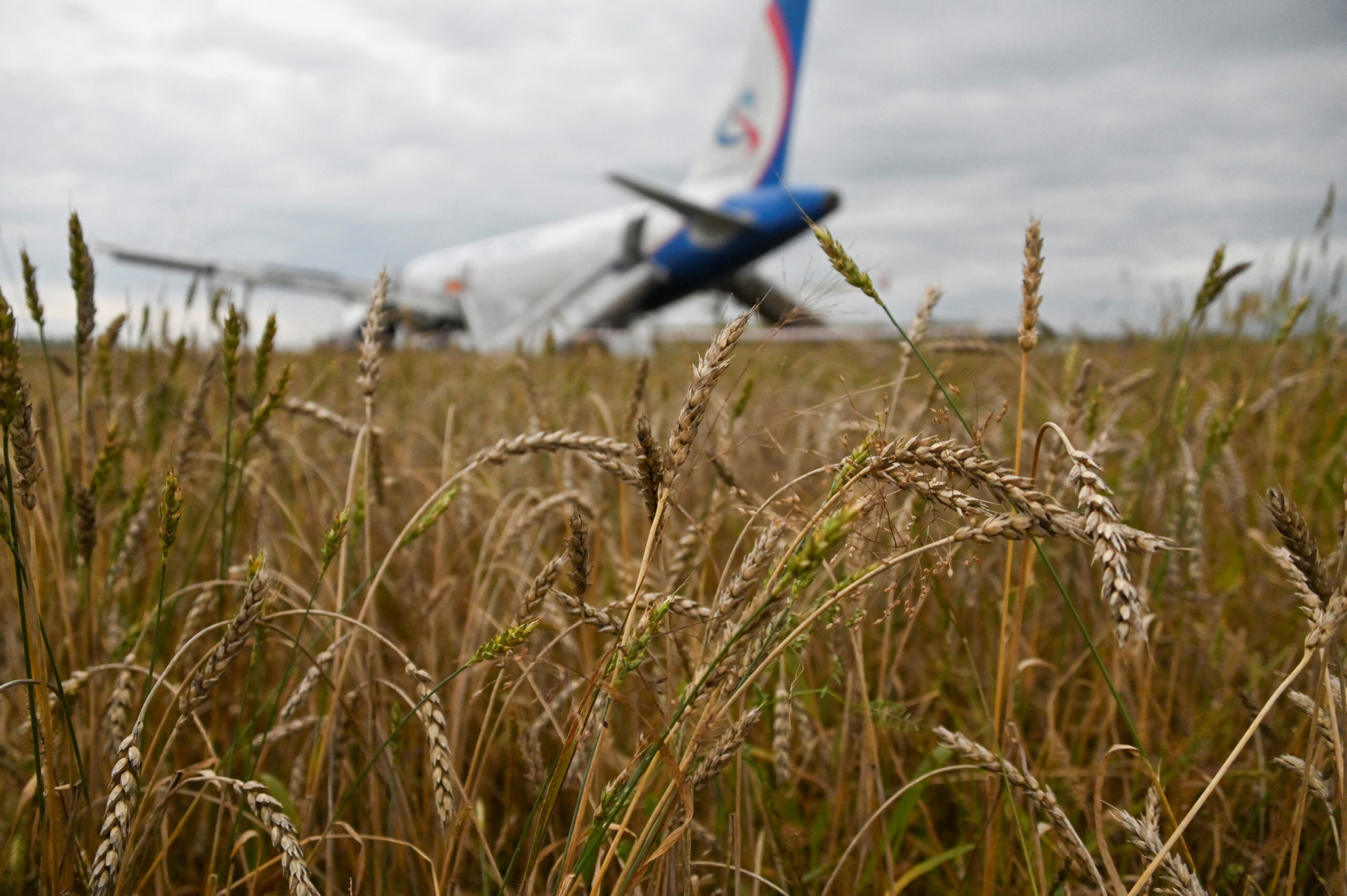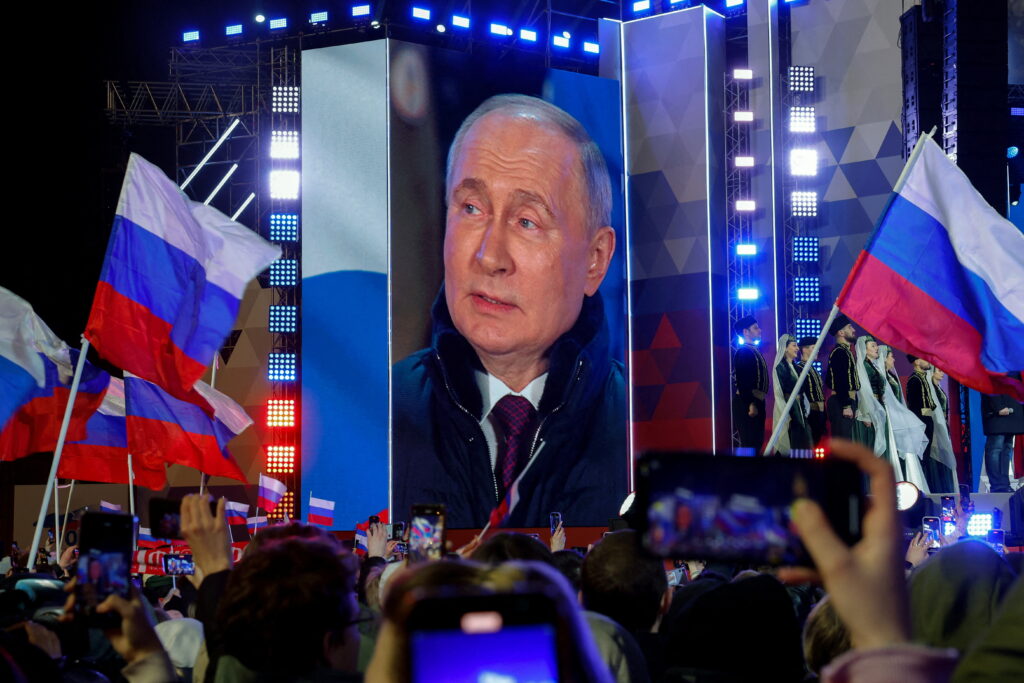After launching a full-scale war against Ukraine in February 2022, the Russian leadership quickly realized that the blitzkrieg had failed and that the war was turning into a «long-term project.» In a similar vein, the unprecedented sanctions levied against Russia are here to stay for a long time.
The sanctions define the context in which the country will have to live, as the sanctions regime will remain in place even after the end of current hostilities. One of the sectors hit hardest by the sanctions is civil aviation. The import substitution strategy announced by the government in the mid-2010s failed to materialize in this sector. The Russian civil aviation market was dominated by Western lessors who sent contract cancellation notices after the sanctions had been imposed, expecting their aircraft and engines to be returned from leasing. These expectations were frustrated: they never got their engines and their aircraft back.
Civil aviation is a very interesting and illustrative example of how the Russian state violates international obligations. It violates them for many reasons, only one of which is real: «we need these planes more.»
Before the invasion: import substitution in civil aviation
The import substitution strategy has been discussed by the federal authorities since the early 2000s, but it only became a key objective after the annexation of Crimea in 2014. In order to reduce the negative impact of Western sanctions, the Russian authorities began to develop numerous plans to replace imports with domestic production. The same task was set for civil aviation, the importance of which for Russia is clear: due to the huge size of the country, difficult natural conditions and underdeveloped land transport, the country has to rely on air transport. After 2014, import substitution began with the production of military helicopters (engines were previously imported from Ukraine) — and this is where it mostly ends. About two-thirds of commercial aircraft were still leased from the EU and the US, which operated about 95% of domestic passenger traffic. By the end of 2021, of the 801 aircraft in the Russian fleet, 298 were Airbus and 236 were Boeing.
Russian-made aircraft were short-haul aircraft and, importantly, they had a high proportion of imported components. For example, spare parts from Western countries accounted for about half of the unit cost of the Russian Sukhoi Super Jet 100 (SSJ100). Later, after the outbreak of full-scale war and the imposition of Western sanctions on a completely different scale, Vladimir Putin blamed both Transport Minister Vitaly Savelyev and airline management for failing to «push» the domestic aviation industry to produce its own aircraft and engines in time. At the time, however, domestic airlines had no incentive to do so. Western sanctions imposed on Russia after the annexation of Crimea in 2014 put some pressure on Russian aircraft manufacturers, but flights to Europe and the US continued and contracts to buy aircraft remained in place. Aeroflot received its first Airbus A350 in early 2020. Thus, the post-Crimean sanctions have not really changed the status quo in Russia’s civil aviation.
February 2022: Panic in the government
On 21 February 2022, at a meeting of the Security Council, Prime Minister Mikhail Mishustin said: «We have been preparing for many months for a possible response to the recognition of the LPR and DPR, I mean, first of all, import substitution and analysis of all the risks we may face if such decisions are taken. These risks have already been worked out quite well, we understand the issues related to the restriction, including the import of high technology and many other issues.» However, the government’s actions after the start of the full-scale invasion and the subsequent wave of sanctions showed that this was not the case. As a result of EU sanctions, Russian airlines received cancellation notices from European lessors. Russian civil aviation «found itself in a situation that no one else in the world has ever been in, except, for example, Iran» (but let us remember, however, that Iran has been under sanctions for about 40 years). The government and the Ministry of Transport were not prepared for this situation.
On 24 February, at a meeting with representatives of the Russian business community, including the CEO of Aeroflot, Putin called on the business community to «understand what is happening and work in solidarity with the government to find tools that will allow us to support production, the economy and jobs, but act according to the realities that are emerging.» In fact, a deal was offered that the business sector could not turn down: an exchange of solidarity («understanding») for government support for business in various forms. The airlines were not directly ordered to retain the leased aircraft in Russia, but it is clear that they were very reluctant to give up the aircraft for commercial rather than political reasons.
Interestingly, it was not until 2 March 2022 that Rosaviatsia, the main federal agency in the field of civil aviation, began to systematically collect information on lessors and requests to repossess aircraft. In a telegram, Rosaviatsia asks Russian airlines to urgently provide information on each lessor of aircraft engaged in commercial air transport, including the nationality of the lessor, and to urgently provide information on any requests by lessors to terminate lease agreements and on the terms of aircraft return. It is unclear why Rosaviatsia did not have this information, as a lease cannot be concluded without informing the federal agency.
An «elegant» solution
In the spring of 2022, the government finally formulated its strategy: Russia will not comply with the notices to terminate leases and return aircraft. What should be done in practice for that end? Create one’s very own new, proprietary institutions (regulations) so that aircraft can fly within Russia (flying outside the country is risky due to the high risk of aircraft arrest). Civil aviation is a complex industry, and the system of institutions is correspondingly complex. Three rules are key: aircraft registration (aircraft must have a home address), airworthiness certificates (a document certifying that a civil aircraft meets certain requirements), and insurance (aircraft must be insured). What used to be international rules are now being replaced by Russia’s own national rules. Aircraft are being re-registered with Rosreestr, Russian airworthiness certificates are beginning to be issued, and the Russian National Reinsurance Company (RNRC), a structure of the Bank of Russia, has begun to assume obligations under airlines’ reinsurance contracts as of March 2022.
At the same time, Russian airlines do not recognize leasing contracts as null and void, and pretend that they still work, but under new conditions that Russia is unilaterally imposing on «unfriendly» states. Russian airlines are starting to open ruble accounts to pay for leasing aircraft from «unfriendly» countries. According to the presidential decree, airlines can make lease payments in rubles by opening a special ruble account «C» in the name of the creditor and transferring money to it at the Central Bank’s exchange rate on the day of payment. In addition, airlines ask the Ministry of Transport for permission to return a (small) part of the aircraft — those that are on principle unfit for use in Russia because there is simply no certificate for that type of aircraft in the country. For example, S7 has requested the return of two Boeing 737−8 MAH to the lessor «due to the lack of a type required certificate.» The aircraft was banned from operation in Russia following its crashes in Indonesia and Ethiopia.
From the lessors’ point of view, it is not the Russian state that is responsible for contractual obligations, but the airlines. Of course, they do not breach their obligations for nothing, but with the blessing of the state (the president and the government). This not only relieves them of responsibility, but also gives them confidence in state support. In effect, loyalty is exchanged for the expectation of a reward from the state. By creating its own institutions to replace international ones, the state supports companies that directly violate international obligations.










